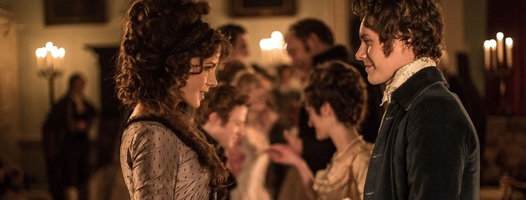 Whit Stillman's Love & Friendship is a tale featured around the cunning and manipulative Lady Susan Vernon, who has just arrived on the grounds of her in-laws. Intent on waiting out the rumors and gossip about her that are sure to be spreading throughout "high society" after her husband's death, Susan makes herself at home at the grand estate, scouring the landscape for a new husband for herself, as well as a future one for Frederica, her daughter who is somewhat hesitant towards the idea of marriage. A beautiful woman, Susan attracts the attention of a few suitors, such as the young, handsome Reginald, and the silly Sir James Martin, who is quite the putz but unquestionably good natured. While watching Whit Stillman's Love and Friendship it becomes quite apparent early on that Whit Stillman's witty dialogue recited in the prose of a Jane Austen novel is a match match made in heaven. I wouldn't call Love & Friendship a deconstruction of the genre by any means, but more a film that lets Stillman simply play in this world of feminine oppression, lavish luxury, and overt politeness that attempts to deflect true feelings and intentions. Plot details aren't that important, so I wouldn't spoil them here, just know that Love & Friendship is very playful in tone, following a strong female character in an age where equality was an afterthought. Susan uses her beauty, charm, and intelligence to get the upperhand in a world dominated by masculinity, using her good looks and intelligence as a sense of empowerment which finds Susan getting what seems to be her way in the end. Being a film by Whit Stillman, the dialogue is as sharp, biting, and witty as one has come to expect from the talented writer and director, with Love & Friendship keeping the viewer engaged from start to finish with its fantastic exchanges. For Jane Austen fans, Love & Friendship may be a bit surprising and unexpected, due to the filmmaker's playful nature, but I can't imagine any fan of the genre, or the filmmaker in general not having a good time with this well-written, witty little film set in the Victorian era.
0 Comments
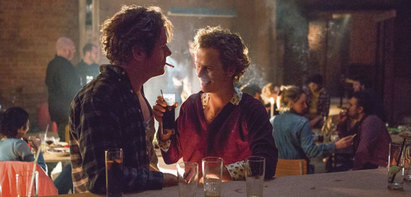 Felix Van Groeningen's Belgica is a story about family, responsibility, and the allegiances we share for those we love. Set in Belgium, the story is centered around two brothers in Frank and Jo, each of which was forced to grow up quick due to a childhood full of neglect. Frank is a charismatic albeit temperamental family man now, who lives with his wife and young son in the countryside. Jo, the younger of the two brothers, owns a bar called Belgica, where he spends his time managing his small business while partaking in some of the debauchery. Through Frank's persistence and need for excitement, something that can relieve him of his droll domesticated life, the two brothers become business partners, transforming the once small, hole-in-the-wall style bar into a larger, club-like venue, full of live music and loads of debauchery. While things are going splendid at first, the brothers begin to realize that a business on this scale was much more complicated than they initially realized, which begins to put strain on their personal relationship and the life of Frank's family in particularly. Felix Van Groeningen's Belgica is a film that works so well due to its well-developed characterizations, showing an ability to contrast the doubts, fears, jubilation, and desperation of its two lead characters in a way that evokes a more primal definition of what it means to be family. These characters are very different but they definitely feel like brothers, each of which with their own similarities and differences, shaped by the childhood bond they share due to neglect. Frank is the older brother, a character who has always stood up for his younger brother, Jo, even protecting him from bullies and other lowlife individuals who saw an easy target in Jo's disability, having a dead eye. Jo, on the other-hand, seems like a character who has always been alone, in one way or another, a character who, at least initially, understands his brother's desperation to have something to work towards outside of his family life. Belgica tracks the two brother's meteoric rise to success with lots of energy and craft, as the filmmakers inject the film with an array of bright lights, loud music, and general debauchery, as the two brothers celebrate. The cinematography in particularly does an effective job at capturing the energy and excitement of Frank's new-found freedom, using heavy handheld cinematography, tight claustrophobic framing, and often blurred compositions to capture the chaotic jubilation fueled debauchery. The businesses' ascent and the success the brothers share is certainly entertaining, but Belgica makes its money in how it documents their inevitable fall, slowly revealing small cracks in the facade of both Jo's relationship with his girlfriend and Frank with his family, as the later spirals more and more out of control due to his new-found freedom. As the Belgica becomes more and more successful, Frank becomes more and more out-of-control, completely neglecting his family as he drinks the night away and fraternizes with other woman. Jo begins to realize that Frank may destroy everything the two of them of built, and it's this brotherly bond that makes their inevitable business break-up that much harder, with Jo having to remove Frank from the equation for the sake of not only the business, but Frank's overall well-being, and the well-being of his family. One of the inciting incidents around Frank and Jo's growing animosity revolves around Frank hiring new security for the Belgica, going against the wishes of Jo who always wanted to Belgica to be a place "where everyone is welcome". This dispute over the security serves as an incident to push the narrative forward sure, but I'd be remissed if I didn't mention that I think this was Felix Van Groeningen's commentary on the current Immigration crises, with the brothers arguing over restrictions about who is and who isn't allowed in their club. The contrast between Frank's decision-making and that of Jo's is particularly compelling, as the film suggests that Jo, at least on some level, aspires for Frank's domestication, with the revelation that his girlfriend may be pregnant being met with much more exuberance than expected. Jo is showing signs of a fading interest in the debauchery lifestyle he and his brother have created, at least somewhat seeing the positives of not living a completely independent lifestyle. It's an exploration of "the grass is always greener on the other side", which each brother seeing their other brother's lifestyle with a longing eye. With Jo forcing Frank to see the error of his ways, he himself is growing up in a sense, but more importantly he has become the archetype "big brother" now, having to take the role of protector which his brother Frank had done so many times before. 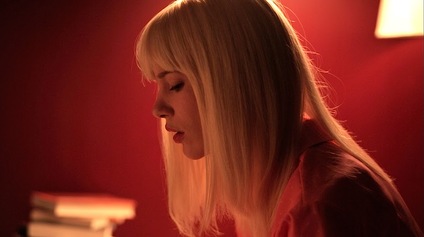 Marjorie Conrad's Chemical Cut is the story of Irene, a twenty-something LA resident who is struggling to find herself among all the noise. Working at a high-end fashion boutique, Irene is adrift, that is until a chance encounter with a talent scout introduces her to the world of modeling. Irene is ecstatic at first, blinded by her own excitement to feel wanted, appreciated, and desired, but she soon discovers the hard way that the modeling industry is just as soul-crushing as her job as the low-level employee at the fashion boutique. Marjorie Conrad's Chemical Cut is a satirical evisceration of Los Angeles' vapid culture and grotesque self-importance, using the fashion industry to encapsulate how the group-think mentality of any culture aims to deconstruct individualism, break-down self esteem, and promote their overall agenda that provides very little room for any outside points of view. While all of this sounds very gloomy, Chemical Cut is quite cartoonist in its depiction of the fashion industry, as the film displays many of the characters which Irene interacts with in a hyper-fake, over-the-top way. To be fair, I have no idea if some of these character's behavior is over-the-top, but the film clearly aims to make the audience laugh, using this borderline cartoonist tone, at times, to reveal the comedic absurdity of this vapid culture where groupthink is essentially celebrated. While I particularly found the evisceration of Los Angeles compelling and relate-able, Chemical Cut at its core is a film about the importance of doing what makes oneself happy, being a film that understands the difficulty of any individual to truly discover what they want to do with their lives, independent of outside influences. Irene is adrift, sure, but so is her best friend, who essentially uses her as a crux to deflect his own insecurities about being a success in life. It is only through a chance encounter with a mysterious old woman that Irene begins to find herself, enraptured by the contrast between the woman's rough exterior and her beautiful interior performance. This mysterious woman is barely in the movie, but she serves an important role, being a character who rejects the conventional definitions of beauty and artistic expression, being a character who performs in front of the masses with exuberance, showing no signs of low self esteem as she embraces what makes her happy - something which Irene needs to do. With Chemical Cut, Marjorie Conrad has created a satirical look at the cultural bubble of Los Angeles, a film that is both playful, powerful, and personal, which captures the adrift feeling many young people feel in life when they are trying to figure everything out.  Michael Curtis Johnson's Hunky Dory is a study of paternity, loneliness, responsibility, and sacrifice, documenting the life of Sidney, a single-father, whose dreams of making it big as a music performer have faded away into the hazy, blue skies of southern California. Hunky Dory is a film that takes its time establishing the world which its main protagonist inhabits, as the first 20 minutes or so of the film simply follow Sidney in what we can only assume is a typical day in the life. Bouncing from acquaintance to acquaintance, Sidney is a character who is very much adrift, often borrowing money from anyone willing to lend it to him, as he scrapes by financially by performing as a drag queen at a seedy, downtrodden bar in Hollywood. One day Sidney's life is thrown into further disarray when his ex-girlfriend unexpectedly drops their 11-year-old son off for the week, forcing Sidney to look after and take care of his son full-time, balancing his crumbling rock-and-roll lifestyle that he refuses to let go with that of his responsibility as a father to his young, 11-year-old son. Set in Los Angeles, the first thing that jumped out to me about Hunky Dory is the sense of solitude and loneliness which the film is able to create, not only related to Sidney, but the setting of the city itself. A city often romanticized as a place where dreams come true, Hunky Dory looks at the aftermath of such romanticism, finding not only Sidney, but many of his fellow acquaintances living a life of solitude and crumbling hopes and dreams. Through Sidney's interactions with a few of his old friends, a prostitute he befriends, and an old man who shows a strong interest towards him at the drag bar, Honky Dory creates an aura of solitude, loneliness, and emotional detachment, where nearly every character seems to be struggling and/or damaged in one way or another, whether it be due to lack of companionship, direction, or simply emotional trauma. Sidney is a character who is much more reluctant to accept his current situation, a character who needs to grow up and take responsibility for his son. Through much of Hunky Dory's running time, the audience is simply forced to observe Sidney's slow-forming tailspin, watching a man attempt to hold onto his ideal lifestyle as long as possible. He is a character who deep-down ashamed at how his life is unfolded, working as a drag queen to get by, and much of Hunky Dory's emotional arch involves this character becoming at peace with his life, taking responsibility for his actions, and most importantly embracing the sacrifice he must make in putting his young son first and foremost above his own dreams and desires. Featuring a strong central performance that is both rebellious and subtlety tragic, Michael Curtis Johnson's Hunky Dory is a story of paternity and what it means to be a good parental figure, detailing the sacrifice, responsibility, and selflessness which defines parenthood. 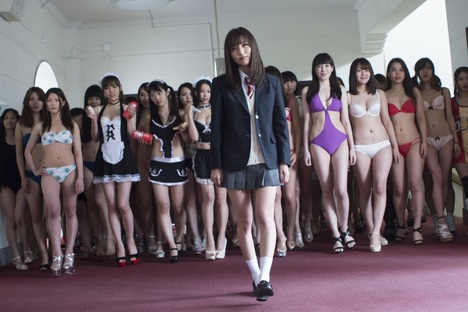 The latest film from the twisted mind of the prolific, outside-the-box Japanese filmmaker Sion Sono, The Virgin Psychics is a madcap teenage sex romp that defies typical genre classifications, being a bombastic film about a virgin, horny teenage boy who wishes to save the world and find the girl of his dreams, after awakening one morning to discover he has psychic powers. With elements of the teenage sex comedy, the common fairy tale, and superhero blockbusters, Sion Sono's The Virgin Psychics is a kinetic, unruly sex romp that is unabashedly filthy in this two hour story full of Japanese schoolgirl fetishism and penis jokes, being told entirely through the eyes of a teenage boys gaze. Like most of Sono's films, the narrative of The Virgin Psychics is unruly and manic by traditional standards, but the filmmaker manages to keep this outlandish teenage sexy comedy fairytale relatively coherent, delivering a film that for better or worse, exhibits the mindset and psyche of teenage sexual awakening, giving sex an almost supernatural quality - presenting sex as a yet unattained thing which mystifies our young protagonist. For a film so enamored with exhibiting a teenage boy's budding sexuality through an absurdest and hyper-exaggerated lens, The Virgin Psychics is a film that remains surprisingly sweet, with Sono's film exhibiting a surprisingly tender film about sexuality in the end that certainly laughs at the absurdity of sex while providing a fairy tale type ending and coming age defining moment about a young man coming to better understand sexuality. Full of Sion Sono's unique, lavish excesses of style and absurdity, The Virgin Psychics confronts the sexual taboos of budding teenage sexuality with a lot of style and a lot of laughs, delivering another one-of-a-kind teenage sex comedy? that is both coming of age story and superhero quest, a film which truly defies any strict genre classification. 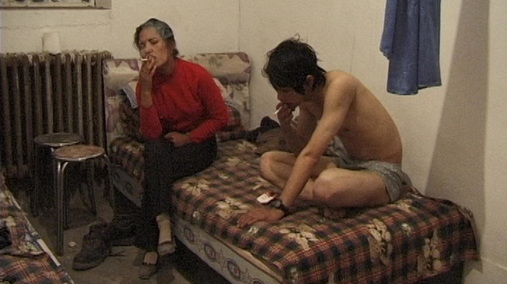 Angi Ju's Poet On A Business Trip is an utterly unique film which chronicles a young poet as he sets off on a "business trip" through China's remote Xinjiang Uygur Autnomous Region. As the poet himself describes it in the opening frame, a "business trip" by definition is when someone is sent out to take care of work-related matters. Being a poet, he has never been on a business trip, with the film being a document of his self-inflicted business trip over 12 years ago. A film that doesn't quite conform to genre restrictions, A Poet On A Business trip is best described as a bawdy travelogue of sorts, where the young poet ventures from place to place, conversing with the locals in the seedy restaurants, brothels, and hotels. Poet On A Business Trip is certainly cerebral but I wouldn't describe it as particularly meditative, being more a film interested in providing the viewer a glimpse of the disappearing world through this rural region of China. One of my favorite conversations of the film takes place between our poet and a man living in the secluded countryside. As they both lament about their different lifestyles, the film exhibits their underlying envy for something different, with the poet intoxicated by the tranquility of the countryside while the man from the country finds himself enamored by the potential excitement, fast-paced nature of the unknown city of life. A Poet On A Business Trip is funny, introspective, and fascinating, as Angi Ju has created what amounts to a quite literal work of art, where the lens works in unison with the pen, as 16 melancholy poems of the poets' experiences are superimposed on the camera's imagery which documents his experiences. Angi Ju's Poet On A Business Trip isn't particularly interested in existentialism, but the film is very humanizing in its own bawdy way, beautifully capturing the essence of traveling, the calming solitude it can create, as the displacement from the normal day-to-day can provide a welcome change.  Luca Guadagnino's A Bigger Splash is the story of Rock legend Marianne Lane, who after having unspecified surgery on what I assume is her vocal chords, finds herself recuperating on the secluded, volcanic island of Pantelleria with Paul, her partner. When record producer and past flame Harry unexpectedly arrives with his daughter Penelope, Marianne and Paul attempt to be cordial, clearly feeling like their peaceful holiday has been interrupted. Unfortunately for, well really everyone, the longer Paul stays the more, lets say nostalgia, Marianne begins to have for her old flame. A Bigger Splash is an elegant, fun little relationship drama with a thriller-type bite, featuring some fantastic performances from everyone involved. This is the type of film that doesn't provide much exposition early on after Harry and Penelope arrive, letting its nuanced performances and direction tell much of the underlying story, a trait that pays off in dividends, as much details of the past relationships of these characters are revealed. What is apparent early on is that Harry is an energetic ball of unmitigated energy, much of which is sexual, which shatters the tranquil world of Paul and Marianne, and what makes this even more enjoyable for the audience is the fact that Harry is played by Ralph Fiennes. Without hesitation, I'd argue that Fiennes gives one of his best performances ever in A Bigger Splash, delivering a powerhosue performance of this alpha-male, energetic character who speaks his mind and usually gets what he wants. Harry eventually makes it quite clear that he is here to get back his old flame in Marianne, with A Bigger Slash divulging into a a moody and sensuous experience, thanks also in part to the skilled direction by Luca Guadagnino. After playing coy for awhile about these character's relationships, A Bigger Splash shows exactly where it is going, with both Penelope and Harry pining for the affection of Paul and Marianne respectively, but it doesn't even matter, due to both the acting, the direction, and a narrative that has a slight trick up its sleeve. One of the more interesting aspects of A Bigger Splash is how it captures the slow erosion of politeness and decency particularly well, with each of the character increasing succumbing to more primal-based decision making, whether it be sex, violence, or simply forgetting to put up a polite face and simply speak their mind. Featuring a suburb cast and juicy material, A Bigger Splash is an engaging, sensuous drama in its own right, but what stood out more than anything to me was the direction of Luca Guadagnino, who elevates the film with skilled direction that evokes a sense of mystery and intrigue, making A Bigger Splash a must see for any fan of these types of sensuous dramas.  Nicholas Steiner's Above and Below is a quasi-documentary that is both intimate and grandiose, documenting a series of individuals who are living on the fringes of society, desolate and alone in their own solitude. From a homeless couple who lives in the food channels under Sin City, to a single man who lives in an abandoned military bunker in the middle of the bare, California desert, Above and Below uses these, for lack of a better word, forsaken characters to create one of the most humanizing films I've seen in awhile, showing no judgement at all as the film truly captures the very essence of what it means to live as a human being. On the surface, none of these characters are particularly similar, especially April, who is participating in training for a Mars mission in the barren Utah desert, but as Above and Beyond progresses, the film reveals a lot of similarities between these characters beyond mere solitude, exhibiting how they are all humans with their own personal struggles, needs, regrets, desires and dreams. All these characters are outcasts in one way or another, each living a life of solitude in barren, secluded circumstances due primarily to rejection, with the filmmakers documenting their environment in a way that almost feels outer-worldly in its sadness. Above and Beyond exhibits humanities desire to accumulate knowledge and comprehend our own existence, being a film that one could argue is a meditation on existentialism in a sense, with each of the characters/ subjects' touching on their own spirituality or lack their of, as they try to comprehend the hand they have been dealt in life. Make no mistake, this is not a sob-story style film by any means, as some of these characters are empowered more so than anything, comfortable in their own skin regardless of their past regrets. Above and Beyond is extremely well crafted as well, a film that does a great job at exhibiting the beauty that can be found in conventionally ugly settings, a visual aesthetic that truly captures one of the film's themes centered around the uniformal aspects of humanity. Every frame in Above and Beyond is felt, with cinematography, editing, and sound that create an atmospheric tension around these characters' stories, ones that become quite touching and transfixing by the time the credits role. Nicholas Steiner's Above and Below is truly a singular existential vision, a film that manages to be deeply human while simultaneously feel grandiose and outer-worldly, a transfixing film that shouldn't be missed. 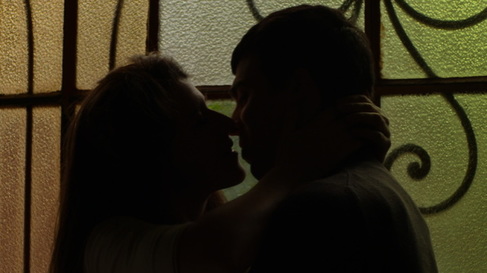 Matias Pineiro's The Princess of France is a challenging and unique examination of desire, relationships, and human connection, a film that is sure to frustrate most viewers due to its opaque, experimental structure and vagueness of its overall message and themes. The film's story is centered around Victor, a stage director living in Buenos Aires, Argentina, who sets out to re-gather the cast of his recent stage play, Love's Labour, in the hopes of recording a radio performance. Reconnecting with all the actresses involved unearths hidden emotions, desires, and intimacy issues, in one way or another, as Victor attempts to construct and carry out the radio performance. In The Princess of France, the main character of Victor is more a cipher to the film's ideas and themes than a central character in its story, a director who connects these various actresses all together and whose past relationships are left intentionally in-specific, offering up the framework to what amounts to what feels like a series of vignettes. Using a fractured narrative that rhythmically flows from person to person, The Princess of France is a film which attempts to quantify desire and examine human connection, offering up what feels like a series of vignettes about desire, examining these characters through an existential mindset. The film attempts to express the vast array of emotion felt from these various characters, capturing how each characters' confusion, wants and desires, are not singular, but all connected in one way or another with humanities' attempt to define what makes them complete or happy through personal desire. One of the most interesting aspects of The Princess of France is its ability to capture desire and connection are exchanged from person to person, with each of these characters' personal insecurities and desires, all being somewhat connected by their interactions with each other. Intimacy is not a personal feeling but one that requires others, and the way The Prince of France captures the congenial qualities of passion and desire is one of the more fascinating aspects of the film. Meticulously crafted, The Princess of France takes place primarily in small bedrooms, secluded studio, and empty museums, where Pineiro's use of shadows and staging create the film's graceful atmosphere that feels fluid, and alive in every frame. Matias Pineiro's use of shadows particularly stood out for me, with silhouettes being used in a few key scenes throughout the film to strip the character of their personal individuality, with silhouttes being used to symbolically present the communal aspects of desire, connection and intimacy. Matias Pineiro's The Princess of France is a challenging character-based drama that places mood above narrative, being a meticulously crafted piece of filmmaking that tackles direction, relationships, and connection in a very existential, broad, and humanizing way. 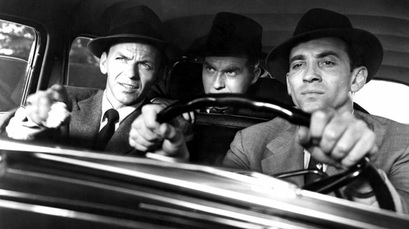 Lewis Allen's Suddenly takes place in the tranquil spaces of small town America, where Tod Shaw, the sheriff of the town of Suddenly, unsuccessfully attempts to court Ellen Benson, a widow and pacifist who shows no tolerance for guns and those men who use them. The tranquility of their small town experience becomes threatened by the arrival of John Baron, a veteran of the United States military, who along with his skilled crew and mercenaries intend on assassinating the U.S. President as he passes through the town. A psychotic individual, John Baron brings violence to the doorstep of Ellen's household, holding the widow and her son hostage, as he and his crew pinpoint Ellen's home as the ideal location to carry out the assassination. Featuring a memorable performance by Frank Sinatra, as the enthusiastically smooth, criminal mastermind, Lewis Allen's Suddenly is a well-paced, meat-and-potatoes style narrative which touches on some interesting ideals centered around masculinity, violence and evil. Early on in Suddenly it becomes apparent that Ellen wants her young son to have nothing to do with guns or any type of tool which could be used for violence, even arguing with the sheriff, Tod Shaw, about her son's desire to own a toy gun. While Ellen remains steadfast in her view, Tod Shaw, as well as Ellen's father-in-law, argue that the young boy should be exposed to such things, viewing it as an maturation process into understanding good vs. evil, he importance of standing up for oneself, and always being prepared. In a way, one could argue that Ellen is terrified of her own son's budding masculinity, with the toy gun offering a quasi-crash course in masculinity if you will, one that Ellen resists, unable to even fathom the idea of her son suffering a similar fate in times of war that her husband did. In Suddenly, Frank Sinantra's John Baron character is stone cold killer, a man who shows little empathy for anything or anyone outside of his own personal interests. An ex-soldier himself, John Baron has no second thoughts about assassinating the president of the United States, even quipping at one point to Ellen as she pleads for him to be reasonable, "show me a guy with feelings and I'll show you a sucker". John Baron is symbolic representation of an exaggerated masculinity, one which has been completely stripped away of any sense of empathy or feeling, intent simply on getting what he wants through any means necessary. John Baron is a character who provides the counterbalance to this young boy's brooding masculinity, and I'd even go as far as to argue that Suddenly is one of the most fair and interesting examinations of masculinity intentional or not, one that highlights both the positive attributes such as toughness, but also the negative aspects such as the empowerment which guns have have on the male ego, as well as the misogyny it can create. The story itself is a simple and gripping thanks to Sinatra's enthusiastic performance but it's what Suddenly says about evil that really stands out, acknowledging that violence and pure evil exist in this world, and sometimes traits associated with masculinity such as toughness and standing up for ones convictions, are necessity in the battle of good vs. evil. Lewis Allen's Suddenly is a film that intentional or not provides an important reminder that masculinity in itself is not a bad thing, as it is completely detached from the definitions of good and evil. |
AuthorLove of all things cinema brought me here. Archives
June 2023
|
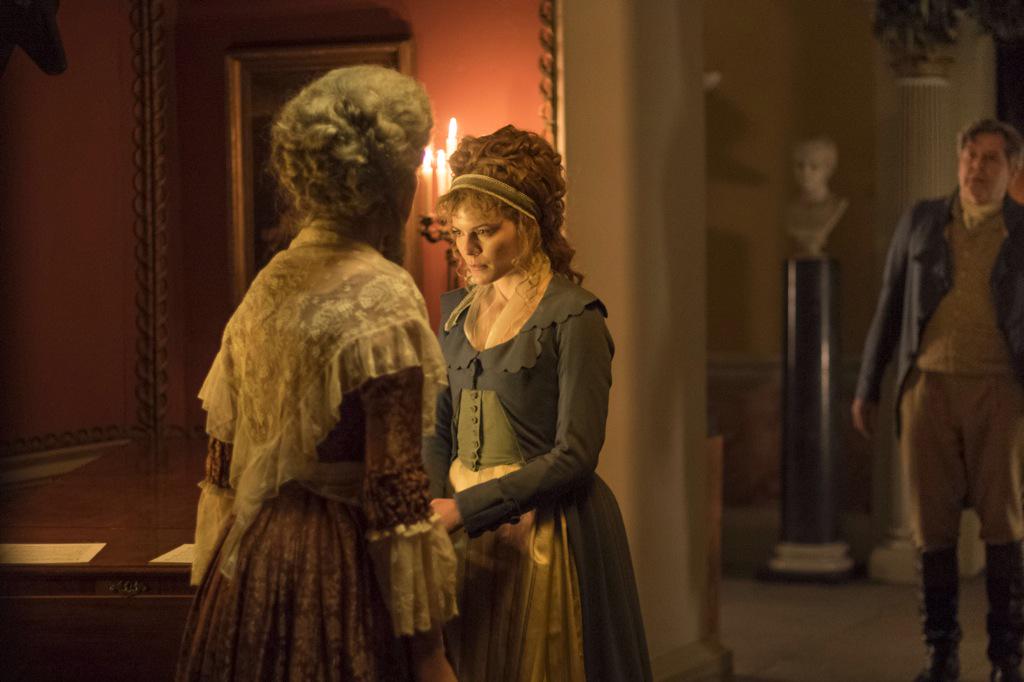
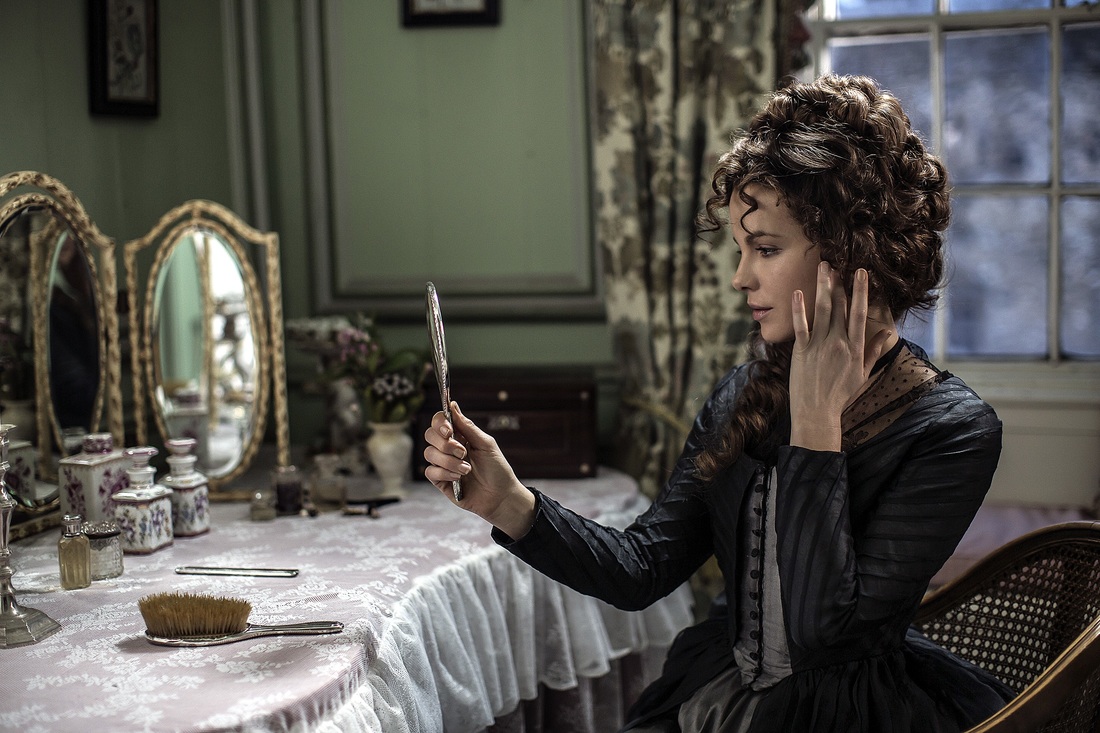
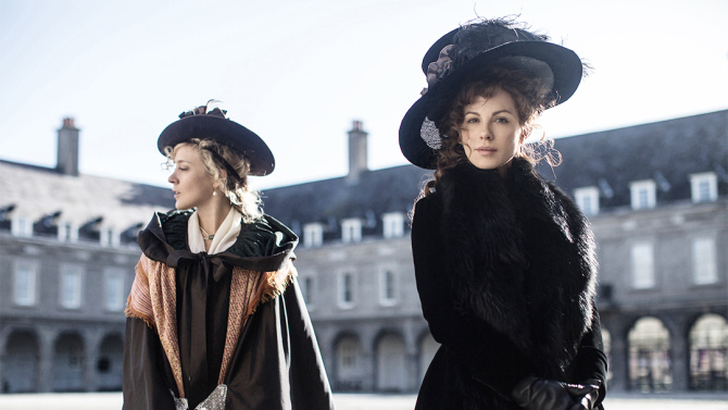
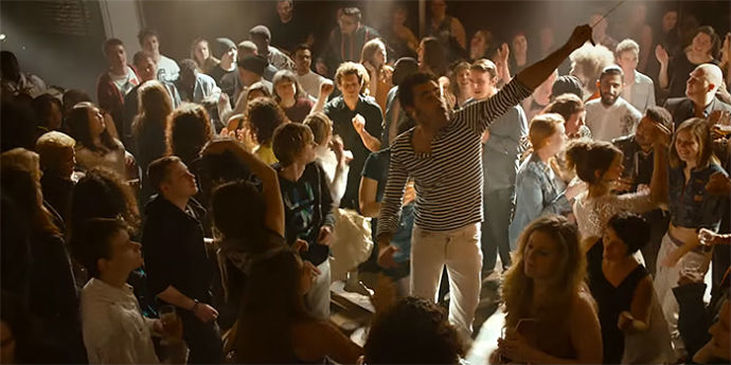
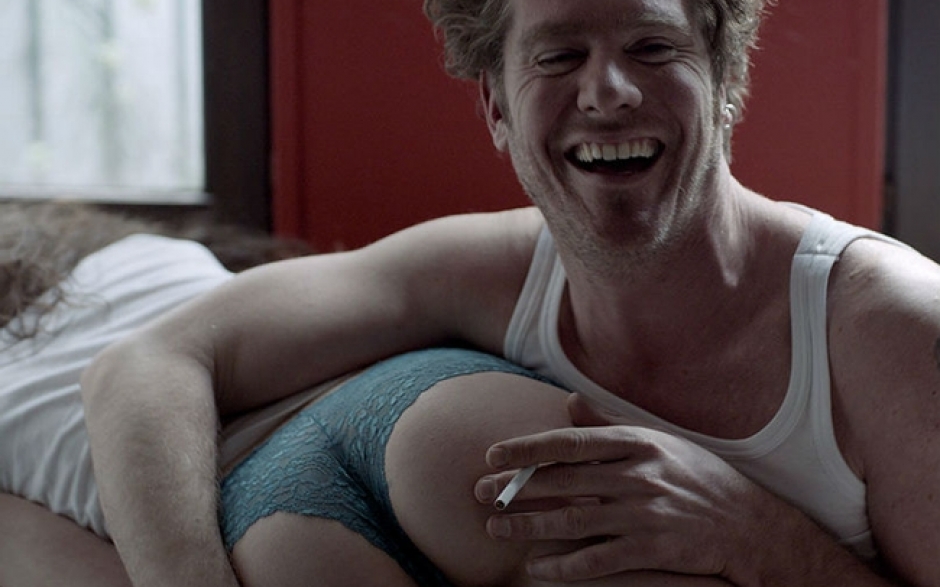
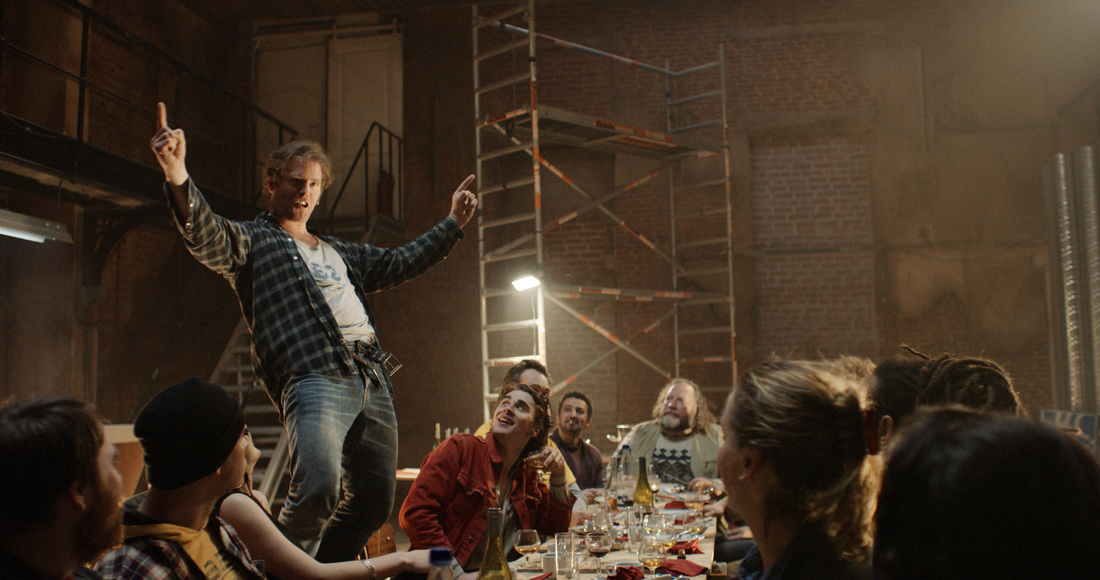
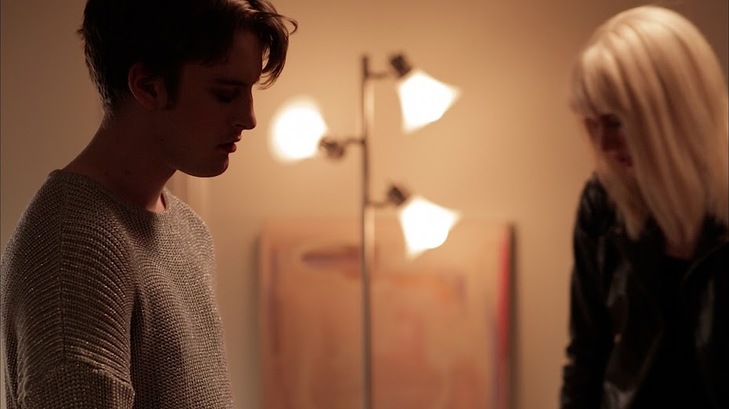
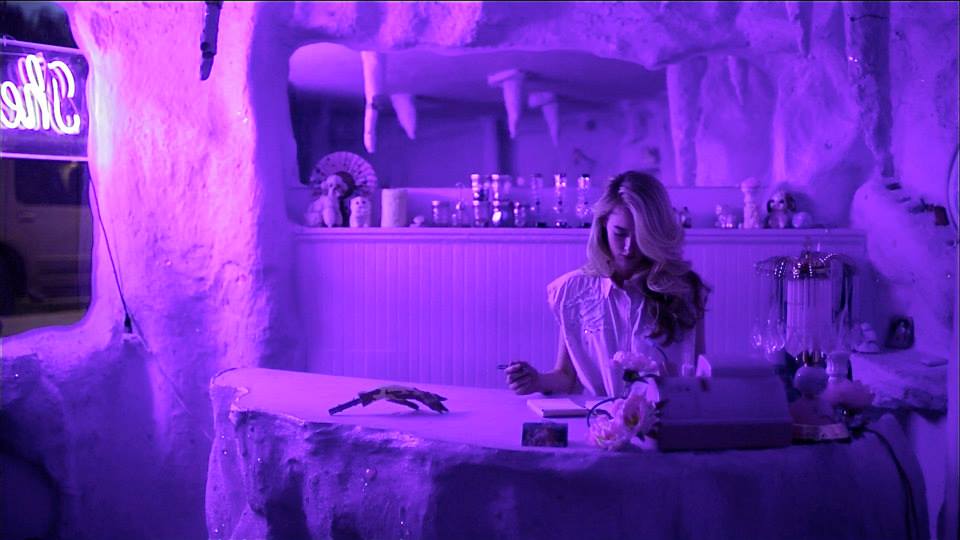
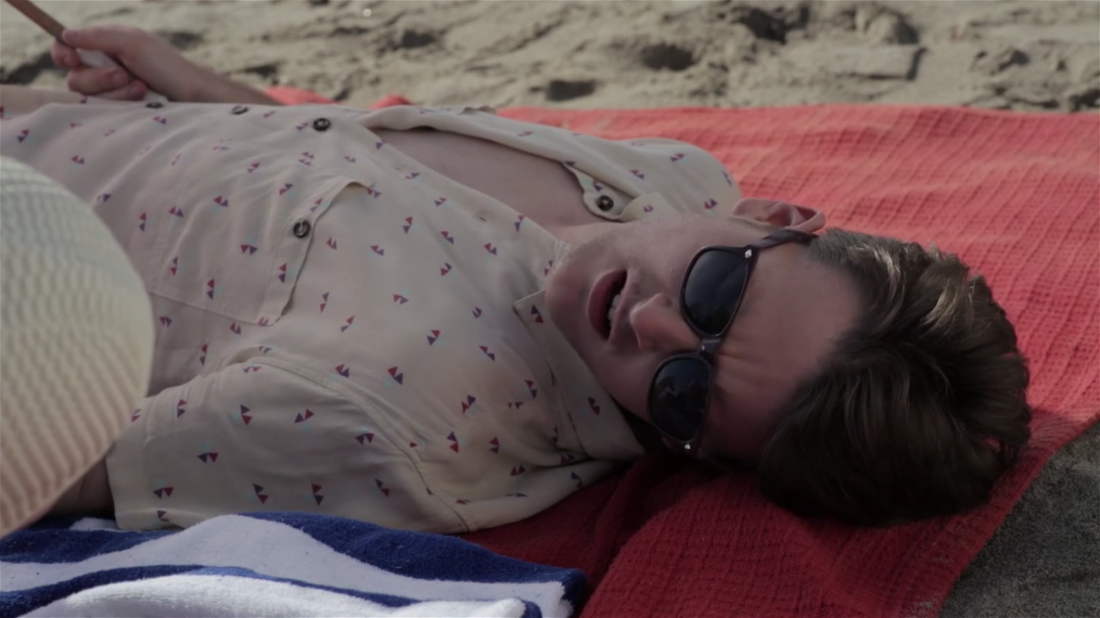
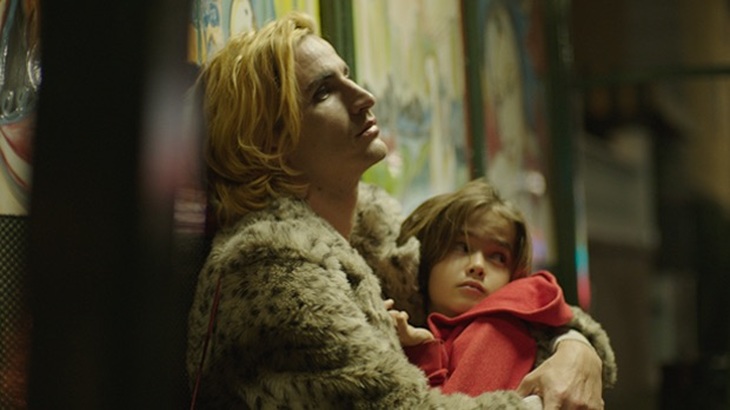
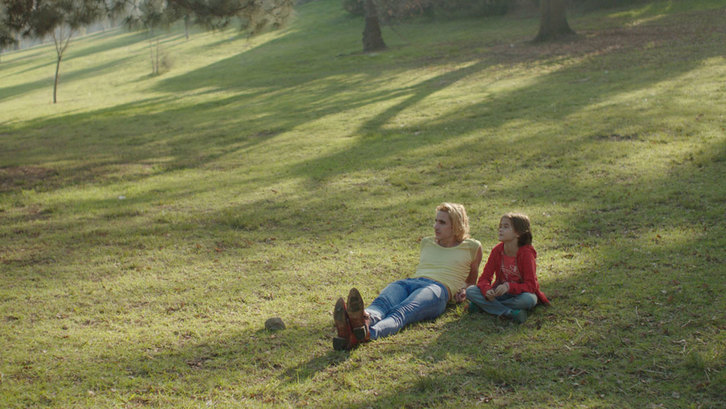
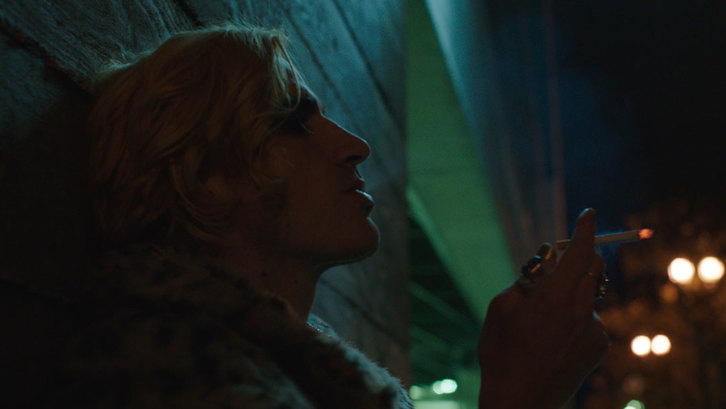


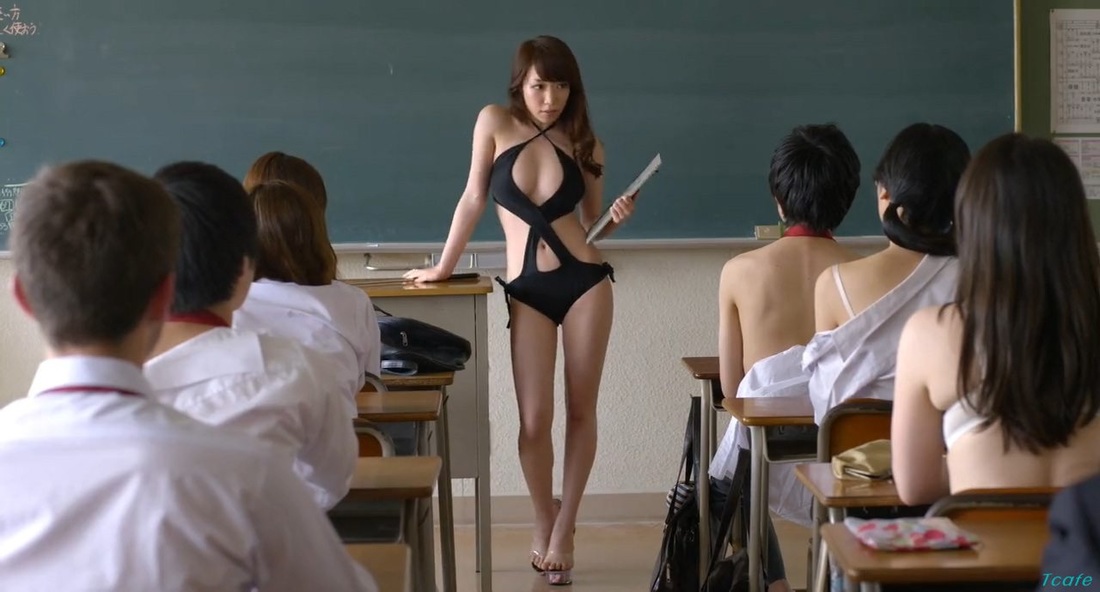
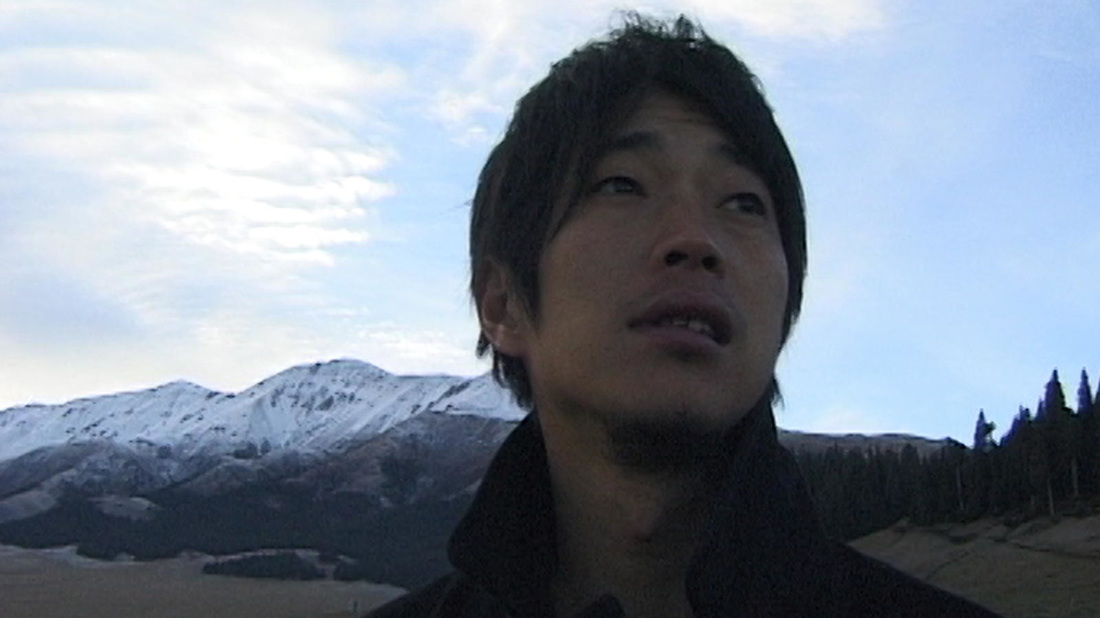
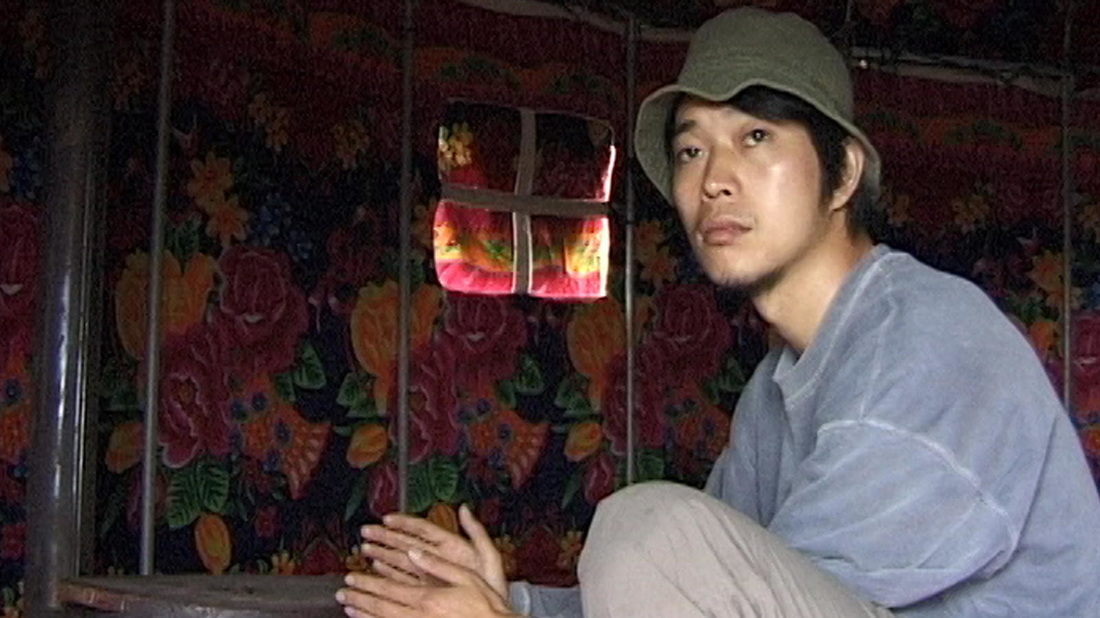
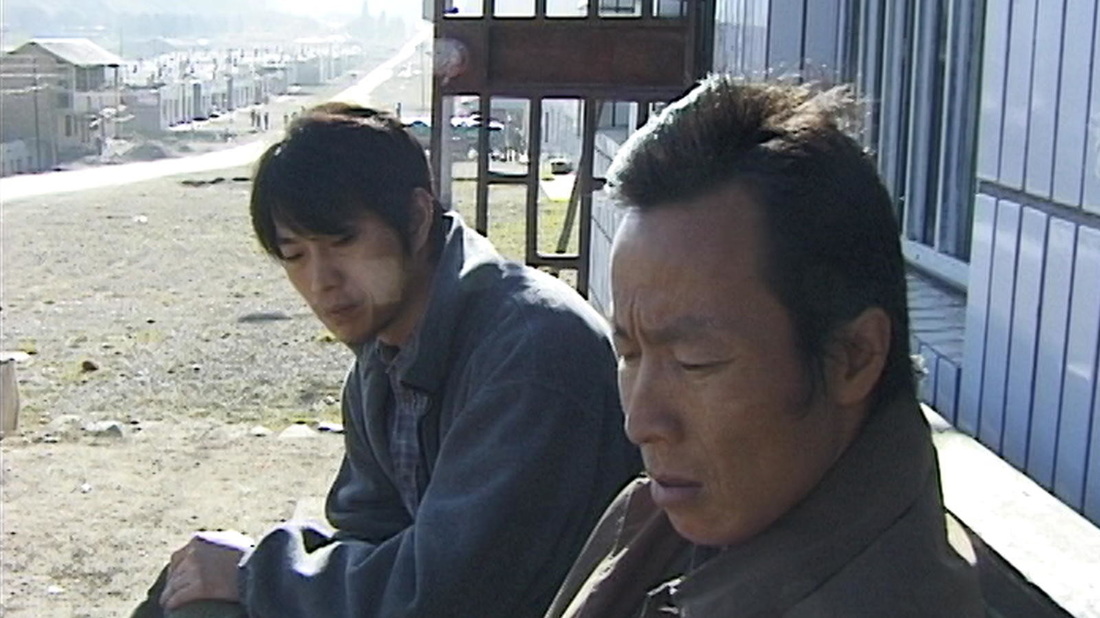
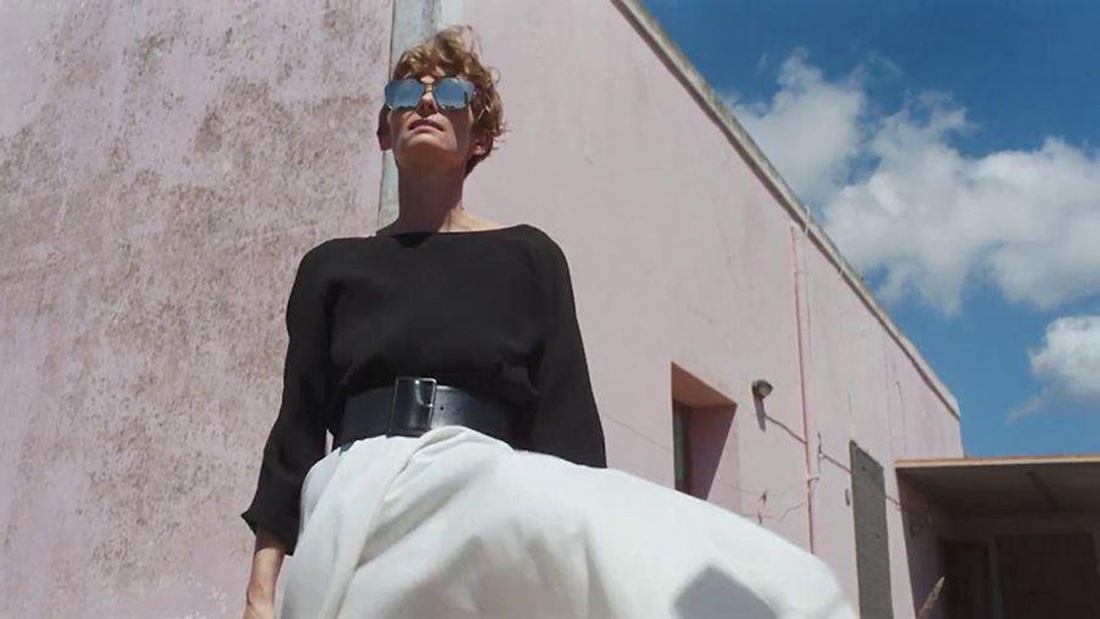





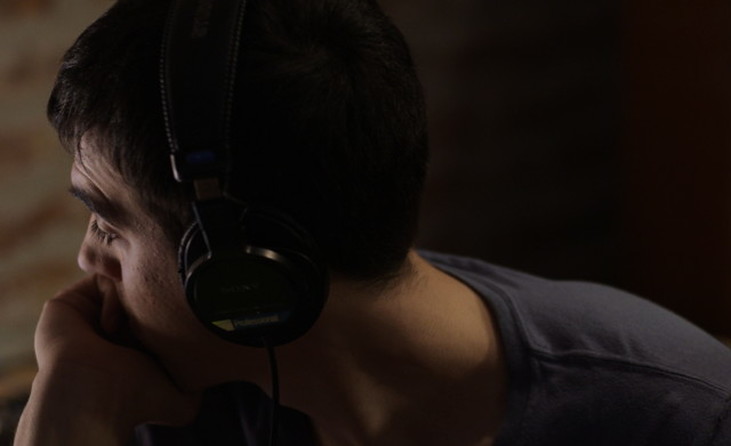
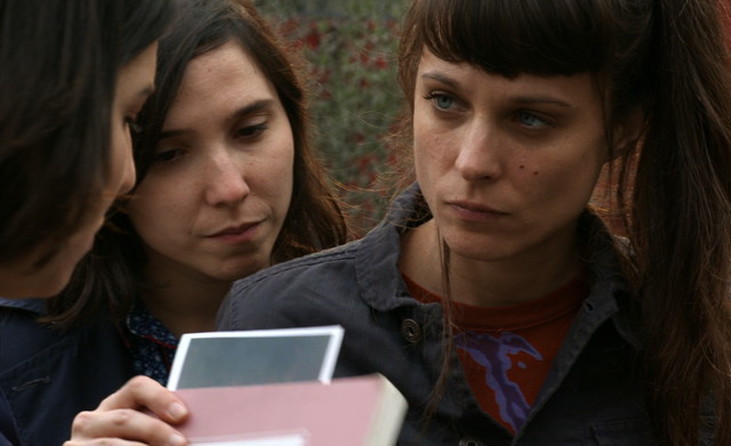
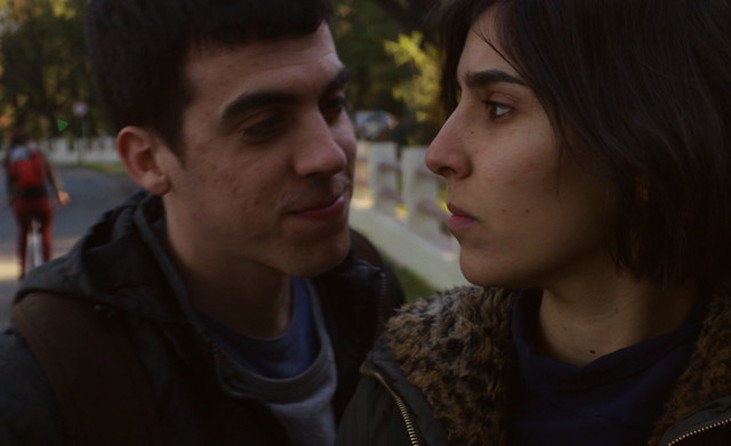
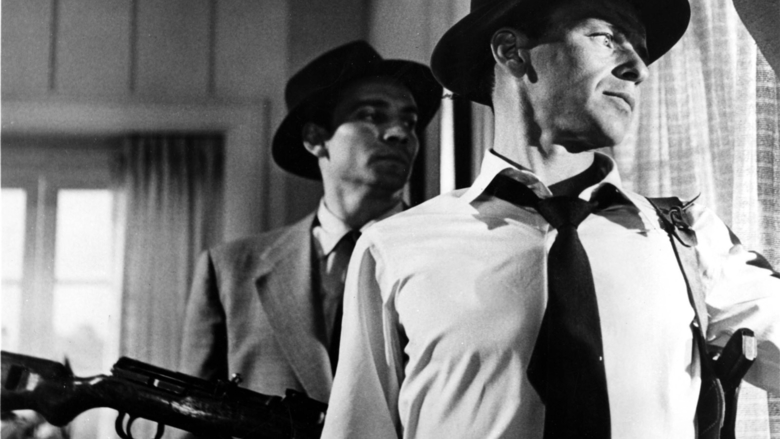
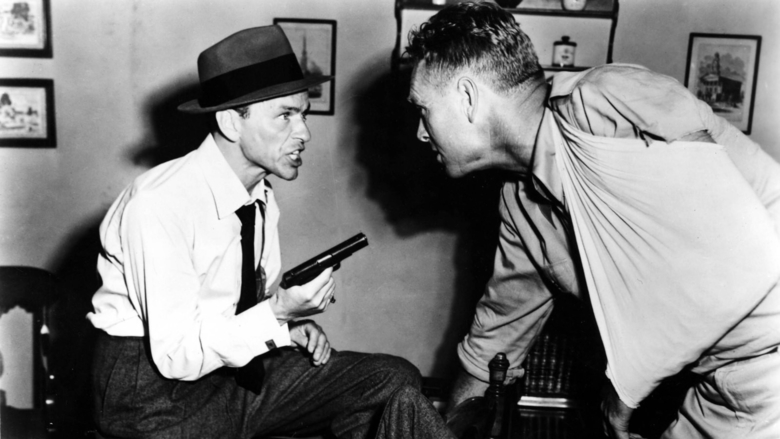
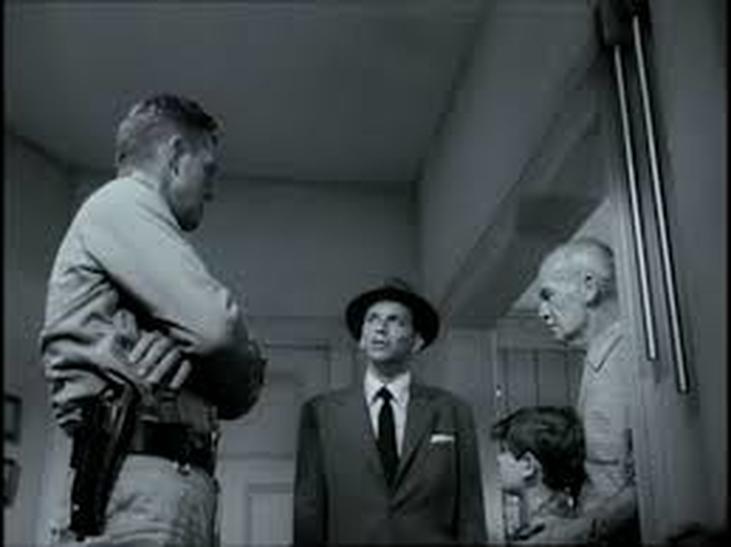
 RSS Feed
RSS Feed
